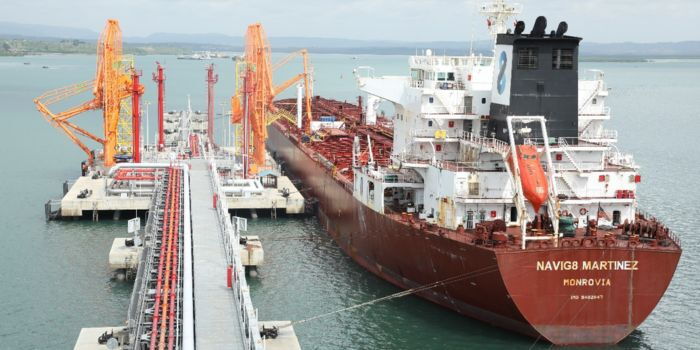Uganda’s 74 New Oil Wells: What It Means for Kenya’s Economy
Uganda’s recent strong push into the oil sector, marked by the drilling of 74 new oil wells in its Tilenga and Kingfisher production areas, may cause both excitement and concern in Kenya. The development, which comes ahead of Uganda’s planned commercial oil production next year, highlights the complex economic relationship between the two East African countries.
Kenya has long been Uganda’s gateway for importing petroleum products, a relationship that injects billions into the Kenyan economy every year. Uganda, landlocked and dependent on the port of Mombasa in Kenya, imports an average of 2.5 billion liters annually, valued at about $2 billion (Ksh9.075 billion ).
This business, which is largely controlled by the Kenya Pipeline Company (KPC) and local oil firms, accounts for a large part of Kenya’s revenue from its northern neighbor.
The announcement of Uganda’s latest drilling success was made by Ruth Nankabirwa, Uganda’s Minister of Energy and Mineral Development, during a media briefing in Kampala on Thursday 22 August.
A man pumps oil into a fuel tank to drive.
Photo
KPC
He revealed that these wells, drilled in Tilenga and Kingfisher areas, are part of Uganda’s wider strategy to exploit its oil reserves. The minister noted that 63 of the 426 wells planned in the Tilenga project have been completed, with good hydrocarbon shows, which is an indication of promising prospects for the country’s oil production.
This accelerated drilling process follows Uganda’s final investment decision in 2022, in partnership with TotalEnergies E&P Uganda, China National Offshore Oil Company (CNOOC) Uganda Limited, and Uganda National Oil Company. These partners are driving the development of the above projects, including the Tilenga and Kingfisher fields, the East African Petroleum Pipeline (EACOP), and the Uganda Development Project.
EACOP, a 1,443 km pipeline, is of particular importance, as it will transport crude oil from Uganda’s Hoima District to the Tanzanian coast at Tanga.
Although this increase in oil appears to be a victory for Uganda, Kenya may also find itself benefiting from the resources of its neighbour. As Uganda’s oil refinery project continues to be built, the port of Mombasa remains a key hub for Uganda’s oil exports.
In addition, the recently signed agreement between Nairobi and Kampala could expand Kenya’s role in the oil supply business. The agreement includes the extension of the oil pipeline from Eldoret to Uganda, allowing Kampala to bring refined petroleum products directly through Nairobi, strengthening trade relations between the two countries.
President William Ruto, speaking during the visit of Ugandan President Yoweri Museveni to Nairobi, this year, pointed out the importance of this agreement. He hailed it as a solution to the administrative problems Uganda has faced in the past, predicting that it will strengthen economic ties between the two countries.
However, Uganda’s growing oil industry has problems. The country has already seen a significant increase in oil-related revenue, with the Petroleum Fund Report showing a 54 percent increase in oil tax receipts in the fiscal year ending June 2023.
This financial impact, driven by increased drilling and exploration activities, can change regional conditions, potentially creating competitive pressures in Kenya’s oil sector.
Despite this progress, Uganda’s oil infrastructure is still developing. The Tilenga Industrial Estate, which will house key operational and support facilities, is nearing completion, and the Kingfisher oil field has made significant progress with nine of the 11 required wells which have been excavated. However, the full impact of Uganda’s oil industry on the regional economy remains to be seen.
Kenya, for its part, will need to watch this evolving landscape carefully. While Uganda’s oil expansion could provide new opportunities for Kenyan firms and infrastructure, it also risks changing business practices and changing the balance of economic power in East Africa.
CS of Energy and Petroleum, Opiyo Wandayi in a previous press conference.
kenyans.co.ke/Opiyo Wandayi
#Ugandas #Oil #Wells #Means #Kenyas #Economy
